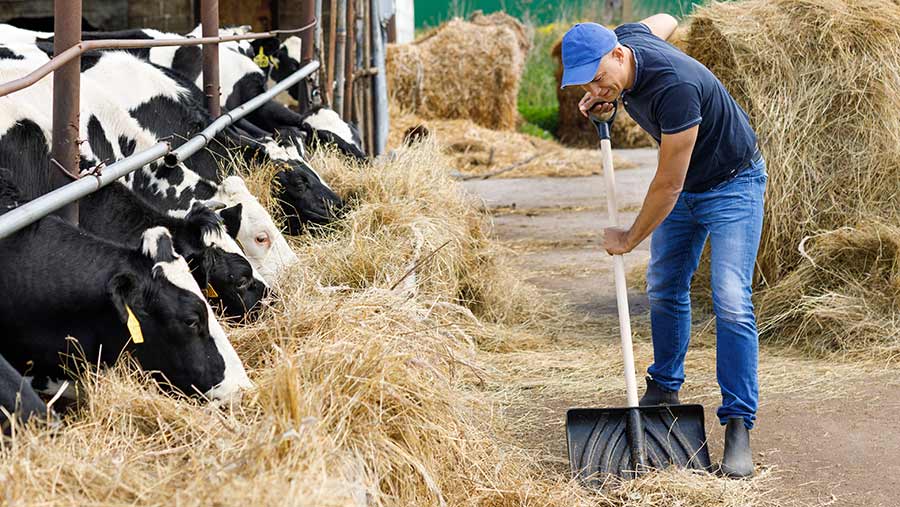Opinion: Work ethic beats experience for new farm workers
 © Eugeni Foto/Adobe Stock
© Eugeni Foto/Adobe Stock During the coronavirus lockdown we have gained a new recruit on the farm. We were busy laying tracks, fencing and building our new milking parlour and we knew that my husband’s fitness instructor had been forced to close his gym. So we decided to give him a call and find out if we could help each other out by giving him some work.
He arrived on the farm a few days later and got stuck in enthusiastically. Despite being a confessed “clean freak” (my husband turning up at gym classes late and spattered with cow muck was a running joke), he was soon milking and covered in cow muck himself.
See also: 5 tips for recruiting new farm staff
As the weeks went on, it became apparent he was looking for a more permanent career change, and the farm could tick the right boxes. There is much talk about how dairy jobs are a hard sell, with long unsociable hours and dirty menial work.
For this reason, many larger farms have narrowed the job roles to reduce the skillset required, and brought in overseas labour, too. On the flip side, there is talk of a skills crisis in the dairy industry.
Personally, I think it’s a matter of perspective and task distribution. One of the things our gym instructor has enjoyed most is the variety.
He’s helped with fencing, setting up grass breaks for cows, calf rearing, milking, animal health tasks, learning to drive machinery and more. He enjoys being outdoors, doing practical work in a small team where there is friendly banter and a good work ethic. These are all big positives that we should celebrate more.
Some people are surprised that we would employ someone with zero dairy experience. In the past we have found that people with experience who think they know best are potentially far more dangerous than someone fresh who is prepared to listen and follow instructions.
As the gym instructor himself commented: “Farming isn’t rocket science – it’s about good communication and being organised”. Having myself started with no experience 10 years ago, I couldn’t agree more.
During the lockdown, furloughed workers were encouraged by Defra secretary George Eustice to work on fruit and vegetable farms to replace thousands of seasonal European workers.
However, according to agricultural recruiter Concordia, at the end of April, of the 36,000 people who registered interest in the Feed the Nation Campaign, only 6,000 did a video interview, 900 were offered jobs, and just 112 agreed contracts.
News this month of more than 90 workers contracting coronavirus on a fruit farm in Herefordshire (probably because of accommodation conditions rather than the work itself) will do little to help.
Of course there is a big difference between the intensely physical and repetitive work of picking fruit and vegetables and the variety of tasks I have described on a dairy farm. This takes me back to the point that livestock farms have a lot to offer in terms of employee satisfaction – if employers are prepared to think outside the box.
Coronavirus will bring long-term changes to the entire economy, and with this there is likely to be a wider pool of people considering careers in agriculture.
A workplace that is largely outdoors, where social distancing is comparatively easy, and where stable work will continue even in the event of future lockdowns, is a massive selling point.
We should all take this opportunity to rethink our recruitment strategies and consider the benefits of diversifying our workforce by welcoming enthusiastic newcomers.
